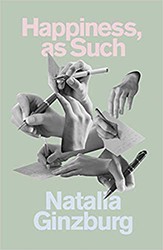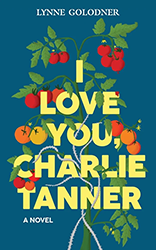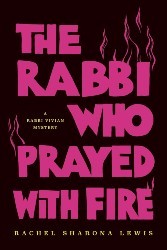The Dry Heart by Natalia Ginzburg is a dark look at marriage and a compelling examination of how far the human psyche can be pushed before it snaps. We learn on the first page that the narrator, whose name we never learn, has shot her husband between the eyes and killed him. The text is bookended by the murder, with the pages in between left to do the job of unraveling the full story and motive for the crime. The plot’s framework keeps the reader hooked and makes for a more captivating read than it would if we lacked this information. It helps, too, in the moments the narrator’s character starts to grate. She may at times seem insipid and shy, but Ginzburg’s characters show us that “even a simple country girl” can hide violent capabilities.
When we first meet the narrator, she’s a virgin living with her parents. She takes a suitor named Alfredo, who, she learns early on, is in love with someone else. The two marry anyhow, and all seems to be going surprisingly well until it becomes clear Alfredo is carrying on an affair with his heart’s true desire — the beautiful Giovanna. She is bold and lovely, whereas the narrator seems unattractive in her fearful nature. The narrator is pregnant when she learns of Alfredo’s affair, and when her husband tells her not to question him, she obeys. The reader is by now tempted to tear out their own hair in frustration with the wife for listening to her awful husband, but Ginzburg’s writing is so deft, her prose so wonderfully wrought, that we stay with it.
“Leave him,” the text tempts us to cry, but this book is an exploration of the realities of a marriage, and makes us question what is normal in a union. For example, when Alfredo and the narrator decide to get married, he tells her: “It’s very unusual for both partners to love each other the same way,” and that if she is simply “very brave we might make out very well together.” The narrator is disgusted by the idea of making love to him but reassures herself that the feeling is probably normal.
Maybe there is no normal, the reader decides; maybe for all our notions of romantic love, what is common and real is one partner getting walked all over like a doormat in order to keep the family together. This is, of course, not what one hopes.
If Ginzburg’s intention was to question the dark heart of marriage and craft a page-turner, she succeeded. Even though it is the stuff of the quotidian, there are pages of real drama. The couple has a baby, for example, who dies. Ginzburg delivers the blow in such an understated fashion that we don’t see it coming: “Then he told me it might be meningitis. At ten o’clock in the evening the baby died.” Ginzburg does not allow even a single line of reaction after this shocking sentence. The narrator simply continues: “Francesca took me into her room and I lay down on her bed and drank a cup of coffee.”
It is similar with the murder — we hardly see it coming. The writing is so subtle, as are the shifts in time. Ginzburg weaves in twelve pages of flashbacks so effortlessly you barely notice them. This is a book to read if you care about relationships, or if you want to study a master writer at work.
Emily Sulzman is a writer and PhD student studying literary nonfiction at the University of Cincinnati.





